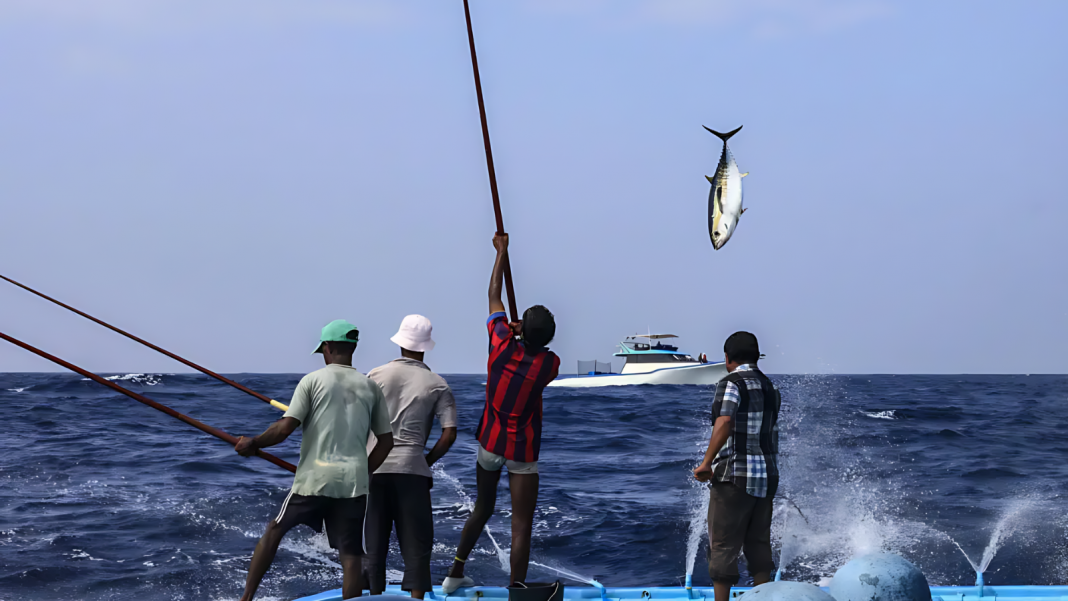The government has decided to slash the purchasing price of fish from the state-owned Maldives Industrial Fisheries Company (MIFCO) effective July 1. The decision, outlined in a document endorsed by the government’s Economic Council and submitted to Parliament, has ignited heated debate and protests among fishermen and policymakers alike.
Deputy Speaker Ahmed Nazim disclosed in a recent Public Accounts Committee meeting that the decision to review the fish purchasing price was mandated by a governmental paper slated for implementation after July 24. Despite these deliberations, the government has expedited the reduction, setting the new price at MVR 15 per kilogram, down from the current rate of MVR 20 per kilogram.
The rationale behind this move stems from MIFCO’s financial struggles, as it currently incurs a significant loss of MVR 7 per kilogram on exported raw fish, a deficit covered by government subsidies. With the new purchasing price set at MVR 15 per kilogram, the government anticipates reducing its subsidy burden to MVR 2 per kilogram, aiming to achieve cost savings amid economic challenges.
However, this decision has not been without repercussions. Fishermen, already burdened by outstanding payments totaling MVR 50 million for fish sold to MIFCO, staged protests last week, highlighting the financial strain they face due to delayed payments. Adhadhu reports indicate that MIFCO is in the process of settling these dues, but tensions remain high among fishing communities.
Adding fuel to the controversy is President Muizzu’s campaign promise to maintain the fish purchasing price at no less than MVR 20 per kilogram and ensure prompt payment within 48 hours—a pledge that now appears compromised by the government’s recent policy shift.
The reduction in the fish purchasing price by the government raises pertinent questions about its impact on the fishing industry’s sustainability and the livelihoods of fishermen who depend on MIFCO as a major buyer. Critics argue that such abrupt changes without adequate consultation can destabilize local economies reliant on fishing, while proponents contend that fiscal prudence is necessary to stabilize MIFCO’s finances and reduce dependency on state subsidies.


















